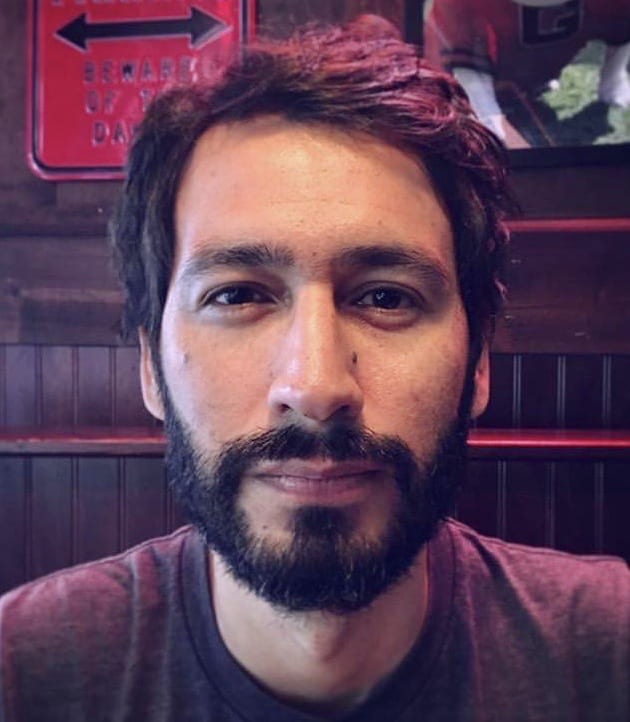Faculty

Miguel Rosas Buendia (Ph.D. Brown University) is an Assistant Professor of Spanish. He specializes in Latin American history and literature. His research interests include history of science, environmental studies, and indigenous studies. He studies topics such as scientific knowledge production, nationalism, and extractive industries, as well as the transatlantic exchange of ideas about the Pre-Columbian material culture.
His book manuscript, tentatively titled Crafting a Technoscientific Nation, examines the circulation of scientific, engineering, and archaeological paradigms and their role in the question of nation-building in nineteenth century Peru. This inquiry takes place through the transatlantic intellectual trajectory, governmental work, and academic writings of the Peruvian scientist Mariano de Rivero (1798-1857). The book studies Rivero’s conceptual and practical involvement in three central subjects –the Andean territory and its resources (centrally mining), the Pre-Columbian material culture and its national interpretation, and the future of the republic in the emerging industrial world. It argues that Rivero’s projects constitute a singular technoscientific view, which serves to examine with new lenses other takes on those subjects during the period.
Trained in literary studies and cultural history, Miguel has also published on poetry and travel writing, and examined the intersections between natural sciences, mining, and aesthetics in a global context. For a future project, Miguel is already collecting primary sources in South American and European archives on modern agricultural initiatives and cultural production around food and farming in the period 1850-1920.

Germán Vergara (Ph.D. University of California, Berkeley) is an Associate Professor of History. He specializes in environmental and Latin American history. His research and teaching explore environmental change, animal history, energy regimes, and the ecological problems of capitalism(s) and industrialization in Latin America over the past two centuries and try to locate those changes in a global context.
His book Fueling Mexico: Energy and Environment, 1850-1950 (Cambridge University Press, 2021) examines how and why modern Mexico transitioned from an agrarian society powered by animal muscle, water, and wood to a fossil-fueled industrial society. It traces the ways in which industrialists, state officials, engineers, and ecology shaped this process and suggests that fossil fuels were adopted in response to the limits of wood-and-water based industrialization, the predominant manufacturing model of the late nineteenth century. The book argues that the shift to a carbon-based society has been the main agent of environmental, economic, and social change in Mexico for over a century. Fueling Mexico is the first study to look at the historical roots of today’s global fossil-fuel energy regime from a Latin American perspective.
Germán’s second book project focuses on the region’s biodiversity crisis, one of capitalism’s most important consequences. The study -tentatively titled Becoming History: Species Extinctions and Capitalism in Latin America Since 1800– will tell the history of capitalism in the region through the lens of species extinctions and animal population loss while illuminating the role that economic change, scientific and cultural ideas, and other factors have had on species loss over time.
Students
Sarah Burchfield is a recent graduate from Georgia Tech with a Bachelor’s in Applied Languages and Intercultural Studies with a focus on Spanish. She also completed a concentration in Biology, Health, Medicine, and Society and a minor in Latin American/ LatinX Studies. During her studies, Sarah has participated in several research activities that focus on topics such as religious freedom and psychology. She has interests in public health and environmental law.
Kara Kanter is a recent graduate from the Graduate program in Global Media and Cultures at Georgia Tech after earning her Bachelor’s and first Master’s in French. Aiming to work in the international film industry, she used her knowledge of media production and editing skills to contribute to the development of LAEH Lab. She moved to Costa Rica after graduation where she plans to get started on her career in film production.
Charlie Key graduated from the Graduate program in Global Media and Cultures at Georgia Tech in ‘23, creating a documentary about CAMJI Bartolo, an agroecological initiative in the mountains of Lares, Puerto Rico. With a BA in Comparative Literature from UGA, a background in visual art and music, a formative stay in Mexico, and years cooking in restaurants, Charlie’s interests lie between gastronomy, cross-cultural exchange, and multimedia production. He has performed audio editing for AMATL, participated in one episode, and created the musical themes for the podcast.